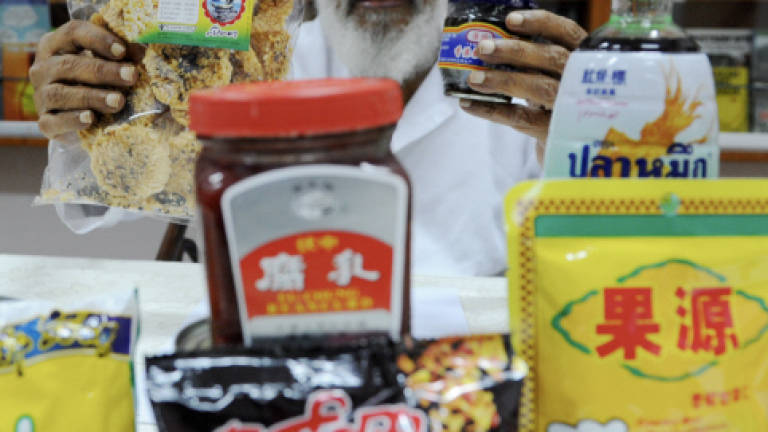Imported food products should use BM labels: CAP

GEORGE TOWN: The Consumers Association of Penang (CAP) urges authorities, especially the Ministry of Domestic Trade, Cooperatives and Consumerism (KDPNKK) to ensure overseas food products are sold using labels in Bahasa Malaysia to ensure consumers get accurate information.
CAP president, S.M. Mohamed Idris said a survey by the association found that labels on food products from China, Thailand, Bangladesh, Vietnam, and Korea use the languages of the respective countries of origin and this clearly violates the stipulated rules.
"Most overseas food products are sold at retail shops, and based on CAP's checks they do not comply with the Food Regulations 1985 Part IV (Labeling) and Trade Description Act 1972 Part II Section 6 (1), namely, labelling in Bahasa Malaysia.
"In addition, the label on the product also don't have the name and address of the importer, distributor and ingredients contained in the product and should not be allowed to be sold in Malaysia if we are serious and concerned about the halal status and what makes up a product because the consumer does not know its content," he told a press conference here today.
He added that the labels provided are meaningless if the ingredients are written in foreign languages that are unreadable by Malaysians and should be an important source of information that helps consumers to make a safe nutrition choice.
Mohamed Idris said consumers are also exposed to unknown food additives such as the use of different numbers and names of chemicals compared to labels in Bahasa Malaysia.
"Consumers may assume that the products sold are safe to eat because they can be in the market, whereas they do not know whether it is halal or its ingredients can cause side effects or in more serious cases can cause death because the labels are in foreign languages," he said.
He said based on the survey, it also found that the life expectancy of non-durable food products must be clearly printed and the authorities have to ensure that the food that has expired is not re-packaged and printed with the new expiry date on the new parcel.
"To facilitate better control on the import of food products, CAP recommends that food products be sent to a specific port before being distributed to the importers to enable more efficient monitoring of food products entering the country to ensure that they comply with our legal requirements.
"In addition, we urge authorities to withdraw all food products labelled in foreign languages to ensure retailers do not sell such products in their stores," he said. — Bernama